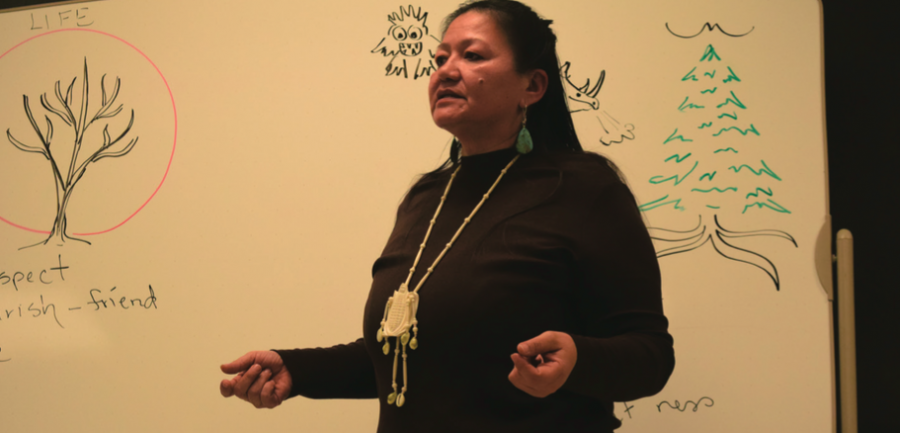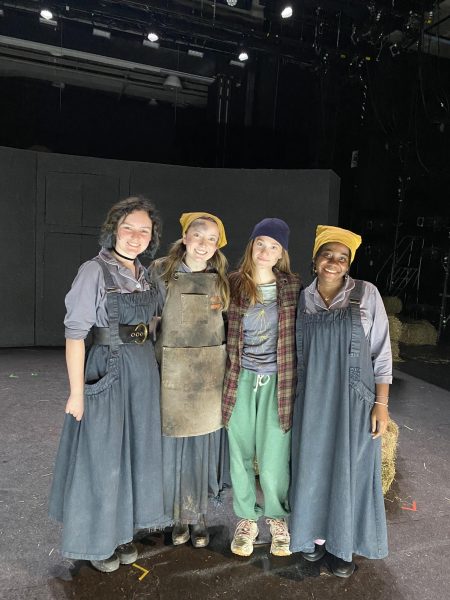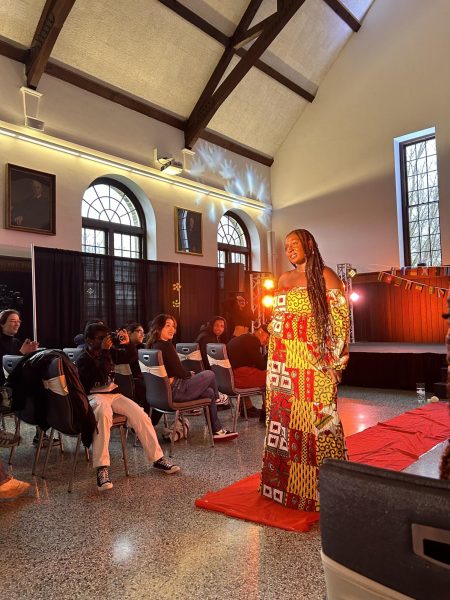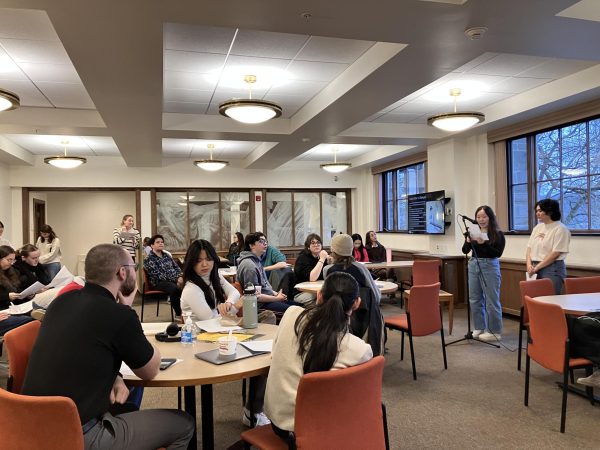“All the Medicine” and the Importance of Food
Alicia Cook, a member of the Wolf Clan, Master of Traditional Medicines and Licensed Practical Nurse, shared her knowledge of traditional medicine with the Colgate community on Thursday, February 21. Cook has been teaching for a long time, and aims to spread the knowledge of traditional plants to present and future generations.
“Although I’ve been teaching, I’ve been learning all along,” Cook said.
The event offered an array of baked goods and delicious herbal and natural root teas that used ingredients such as elderberry, catsfoot and cedar. Once the room filled with the smells of the natural herbs, the presentation began.
Cook started with an acknowledgement to the past, present and future Oneida people whose land Colgate is built upon. She then introduced the audience to the Haudenosaunee thanksgiving address. When a group of Haudenosaunee people gather, they first give thanks to the things in nature that provide for life. She drew images of trees, water, fruit, the moon and other elements of nature on the board, and asked people in the room to say two things about each element of nature that they are thankful for.
After each thanksgiving, it is traditional to say “and our minds become one” to create a sense of community before the discussion begins. The idea is that in coming together, people are more powerful and can send important positive vibrations into the universe. For example, Cook explained that when we bring negativity to water, the water is no longer clean. Without clean water, the foundation of all traditional medicine crumbles. Giving thanks to water, on the other hand, sends out positive vibrations to keep the water clean.
Cook offered more guidelines regarding interactions with plants, such as one must always ask plants for permission when picking them. This sends the plants a positive energy, and they are able to help heal us in return. If you just take a leaf off of a tree without asking permission, you should not expect that tree’s energy to help you medicinally. She says that this is a downfall of science: when western medicine is made, no regard is given for the plants that the medicine came from and therefore none of the plant’s energy is in the medicine.
Cook also works with the United Plant Savers (UPS). Each year, she obtains seeds of plants that are on the endangered plants list, and plants them all around her property. This is her reciprocity for picking other plants for medicine.
Following this discussion of reciprocity and respecting nature, Cook began describing the most important natural ingredients used in holistic medicine and the multitude of uses they have. For example, the white pine has an anti-bacterial sap that can be put on wounds, the needles and bark provide a healing tea and the pine seeds contain vitamin C. She also taught the audience natural ways to bring down a fever, heal congestion and the right way to treat the flu to prevent a secondary infection.
Although Cook talked extensively about plants as a source of healing, she reminded us that food is actually our best medicine.
“Food is 80 percent of your health,” she said.
Making sure that food is organic and healthy is one of the most beneficial ways to heal yourself, according to Cook.
“I thought it was cool to learn about the natural ways we can heal our body and it made me reevaluate my eating habits and want to eat healthier,” senior Lizzie Patterson said.
To close her presentation, Cook once again went through the Haudenosaunee thanksgiving address, and audience members thought of more reasons they were grateful for the natural world. This thanksgiving address left the crowd with a reminder of how important the environment’s wellbeing is to our own wellbeing.
Contact Sasha Balasanoc at [email protected].







